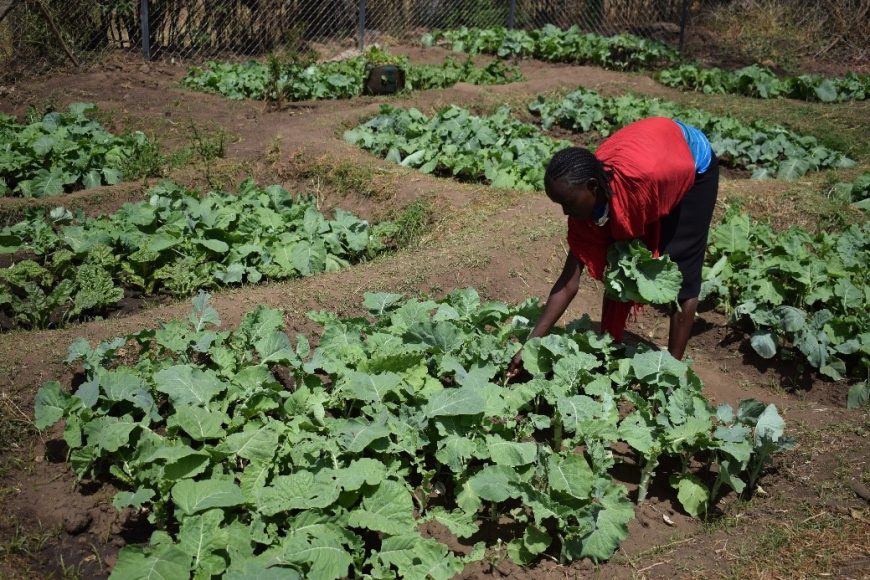In February 2021, an estimated 1.4 million people in Kenya are struggling with food insecurity. 10% of the affected population live in arid and semi-arid lands, especially ASAL counties. These agro-pastoral communities in ASAL areas are highly dependent on the rangelands that feed their livestock and the cyclical rains that help their crops grow.
In addition to recurrent climatic shocks, a study conducted by ACTED in 2019 in Samburu County, in Kenya, showed that poor uptake of climate sensitive crop is one of the drivers of food and nutrition insecurity. This is further worsened by shortage of farming inputs and tools as the seed vendors in the county rarely stock climate-sensitive seeds which are not in demand in the region.
Helping pastoral communities adapt to climate change and droughts
The combination of climatic hazards, locust infestations and the COVID-19 pandemic, poses a great threat to food security in Samburu County. With the destruction of lands and crops by the desert locust and perennial drought, food prices have considerably increased. Populations struggle to access food, and most people have lost their livelihoods.
In Samburu East Sub-County Ngilai North Ward Lturoto village in Samburu County, a group of farmers named Mantasian/Lturoto farmers group had made some efforts to address food and nutrition security in their location which was stalled due to drought shocks and lack of farming inputs to support them in carrying out the farming activity for their food security.
ACTED through the I-CREATE project introduced the climate smart and nutrition sensitive innovations for enhanced food crops production to Mantasian/Lturoto farmers group which included use of sack gardens, sunken bed and oasis gardens. ACTED also supported them in the provision of agriculture inputs and trained them on the production and utilization of nutritious food through kitchen gardening.
Vegetable farming to fight the lack of food
To go even further, ACTED trained members on land preparation, land use planning, crop husbandry, harvesting, post-harvest loss management, integrated soil, water and pest management. To respond to the food insecurity in the area, the training also included nutritious vegetables farming through sack gardens, sunken bed and oasis gardens.
“We received farming tools and inputs besides the new farming techniques that we were not aware of” said Peninah Lolmongoi aged 28 who is the secretary of Mantasian/Lturoto Farmers Group and a mother of three.
Another problem besides the lack of knowledge was also lack of diversified diet which can lead to a nulber of health problems like anemia.

Another problem besides the lack of knowledge was also lack of diversified diet which can lead to a nulber of health problems like anemia.
I was feeling unwell and dizzy. I visited the local dispensary and after diagnosis the nurse told me that I was anemic and I should take a lot of spinach and similar vegetables. I was worried as the market is far and rarely do we find such vegetables there.
ACTED helped us reviving our farm and gave us trainings that we are using now to produce these vegetables. I received both spinach and kale seeds besides others which are now vibrant in my plot and together with my family we are consuming it regularly !
Through the intervention and support provided by ACTED with funding from USAID/BHA, the group members are vibrantly engaged in nutritious vegetables production organically through modern methods. There is increased food production and income sources as the group members sell the vegetables and supplementing other household needs using the money earned from the sale.
ACTED in partnership with Concern Worldwide supported 1,689 beneficiaries from Samburu County, Samburu East and Samburu North sub-counties with nutrition-sensitive food crops innovation to enhance the communities’ nutritious food production.